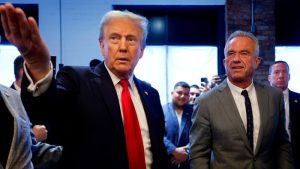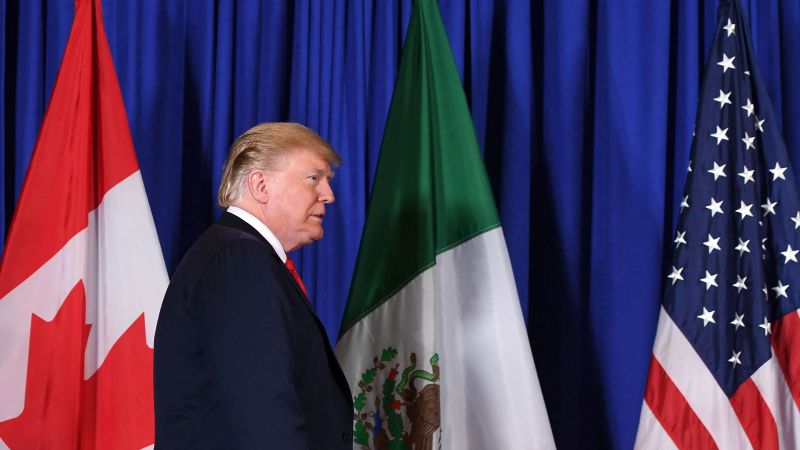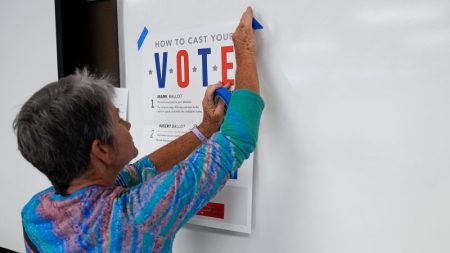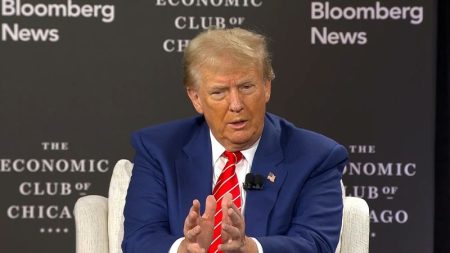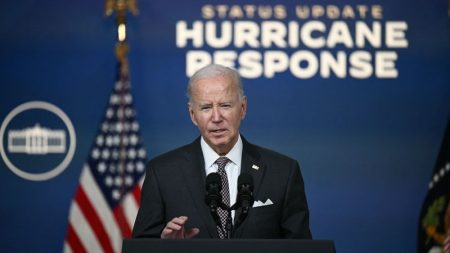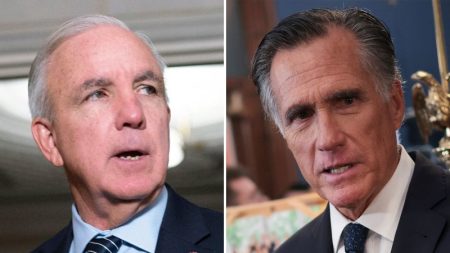Former President Donald Trump is once again pledging to save American manufacturing and bring back jobs by rewriting a trade agreement with Mexico and Canada.
But this time, instead of replacing the North American Free Trade Agreement, known as NAFTA, which he has often described as the “worst trade deal ever made,” he wants to renegotiate his own trade deal.
Trump signed onto the US-Mexico-Canada Agreement, or USMCA, in 2018. It took effect in January 2020 and replaced NAFTA.
In 2018, Trump said the USMCA would be “the most modern, up-to-date, and balanced trade agreement in the history of our country, with the most advanced protections for workers ever developed.”
But now, he thinks it can be improved.
“Upon taking office, I will formally notify Mexico and Canada of my intention to invoke the six-year renegotiation provision of the USMCA that I put in,” Trump said last week during a speech at the Detroit Economic Club.
The USMCA includes a clause that requires a review by the three signatory countries at the six-year anniversary.
When asked by Fox News’ Maria Bartiromo in an interview that aired Sunday about his plan to renegotiate the USMCA, Trump said it would not undermine the deal he put together.
“I want to make it a much better deal. I want to take advantage, now, of the car industry,” he said.
Vice President Kamala Harris has also said she would use the USMCA review process.
Harris, who is now the Democratic presidential nominee, was one of 10 US senators who voted against USMCA at the time.
“I knew it was not sufficient to protect our country and its workers,” she said in a statement last week.
Following the Senate vote in 2020, Harris said she was concerned the USMCA’s environmental provisions did not go far enough to address climate change.
Much of USMCA simply updated the 25-year-old NAFTA.
One of the biggest changes was a new incentive to build cars and trucks in North America. USMCA requires 75% of a vehicle’s parts to be made in one of the three countries – up from the previous 62.5% rule – in order to remain free from tariffs when moving across borders.
It also required more vehicle parts to be made by workers earning at least $16 an hour.
The trade deal created sweeping new benefits for the technology sector, in a chapter on digital trade that wasn’t part of the original NAFTA.
Strong labor rules and environmental protections were also included.
Read the full article here

